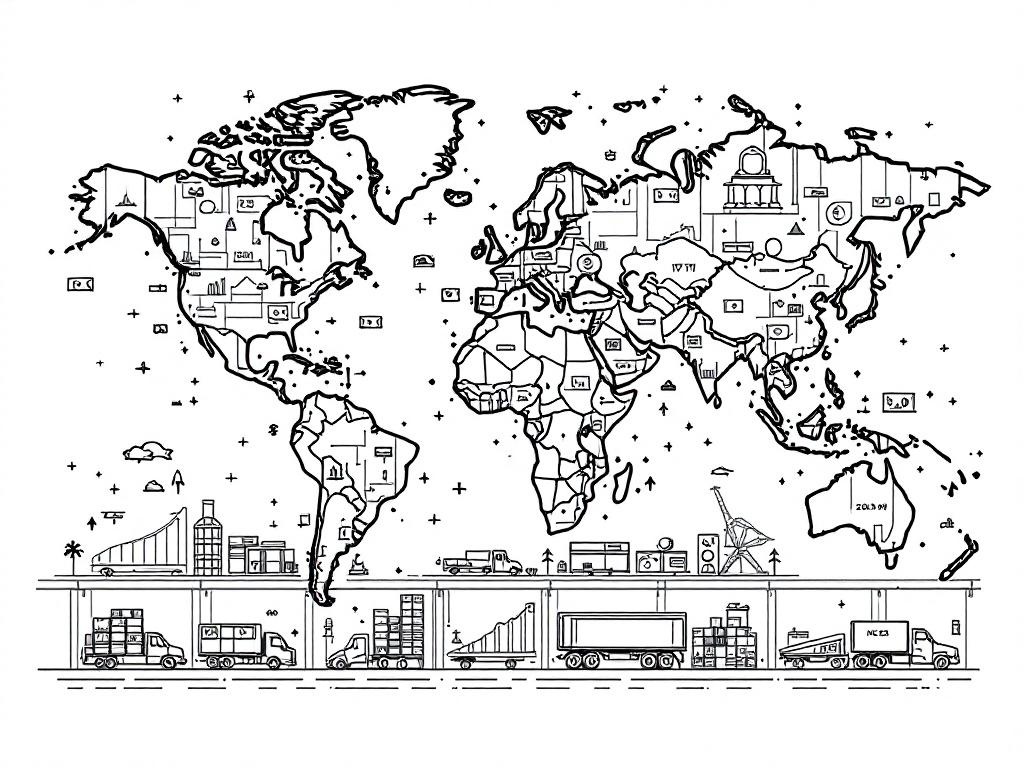Global Logistics Industry Set to Double by 2033

New York, Friday, 8 August 2025.
The logistics sector will expand from $10.2 trillion in 2023 to $20.1 trillion by 2033, driven by technology and globalization, suggesting impactful changes for global trade efficiency.
Unprecedented Growth in the Logistics Sector
The global logistics industry is on a trajectory to more than double its market value from $10.2 trillion in 2023 to $20.1 trillion by 2033, according to a recent report by Allied Market Research [1]. The report forecasts a compound annual growth rate (CAGR) of 7.3%, with significant increases from 2024 onwards. This massive expansion is primarily driven by technological advancements, globalization, and the rising demand for efficient supply chain solutions [2][3].
Technological Advancements Fuel Industry Expansion
Technological innovations such as automation, artificial intelligence (AI), blockchain, and smart warehouses are set to play a crucial role in enhancing supply chain transparency and optimizing route planning [1]. These advancements allow logistics companies to improve real-time tracking and reduce operational costs, addressing growing consumer expectations for faster and more reliable services [3][4].
Impact on Global Economy
The logistics industry’s projected growth has significant implications for the global economy, particularly in terms of job creation and infrastructure investment. With the rise of e-commerce and increased consumer demand, logistics providers are investing heavily in new technologies and route optimization software, contributing to job growth in technology and logistics sectors [5]. Enhanced logistical efficiency is expected to bolster international trade and economic connectivity, which is essential in navigating today’s complex global trade environment [2][6].
Regional Growth Dynamics
The growth of the logistics industry will not be uniform across regions. For example, the Asia-Pacific region held the largest market share in 2023, yet regions like North America show rapid adoption of technology-driven solutions, which are pivotal for handling increasingly complex logistics needs [1][6]. As logistical challenges such as high industrial land rents and labor shortages persist in certain markets, the emphasis on technology and automation becomes even more critical [4].
Sources
- www.einpresswire.com
- www.mordorintelligence.com
- www.ttnews.com
- www.jll.com
- scoop.market.us
- re-nj.com